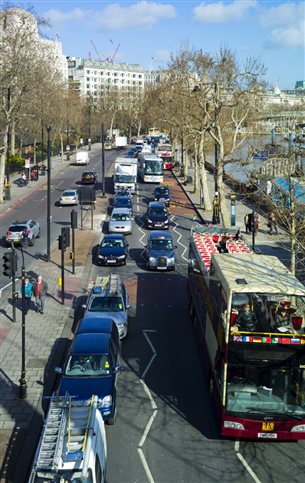Ralph McTell famously sang, “Let me take you by the hand and lead you through the streets of London, I'll show you something to make you change your mind”, and that is precisely what a leading road safety charity are hoping to do by advising ways of adapting your driving to cope with the capital’s congested routes.
Amongst the helpful advice proffered by the Institute of Advanced Motorists (IAM) is to be aware of the effect of frustrating traffic gridlock on other road users. Drivers under strain may behave more unpredictably than usual, so treat them with caution.
Motorists unfamiliar with London driving may be surprised at the volume of cyclists and pedestrians, and the advice from the IAM is to allow these vulnerable road users plenty of room, and to avoid overtaking cyclists on narrow streets. It pays to be prepared for pedestrians to attempt to cross roads without first looking properly.
Road closures and diversion occur regularly on London’s heavily-used roads, so listen out for traffic updates and always have a back-up plan by researching alternative routes just in case.
As any student of fuel economy figures knows, sitting in traffic can be an expensive past time. The IAM advises drivers to try and keep their vehicle moving where possible, even in traffic queues, as this is more fuel efficient than stopping and starting. Also, when stationery, you should apply the handbrake. Another item which hits fuel economy hard is wrongly inflated tyres, so check your tyre pressures regularly when cold. Driving with incorrect tyre pressure also increases the risk of damage.
IAM chief examiner Peter Rodger said: “In such a densely populated city, we know congestion is going to be an issue. You’re best off avoiding bringing the car into town completely, but if you must drive, leave in plenty of time, expect the arterial routes to be slow-moving and make sure you know which areas require you to pay a congestion charge.”
Click here to sign up for our monthly newsletter
| Popular news stories |
||||||
 |
 |
 |
 |
|||








